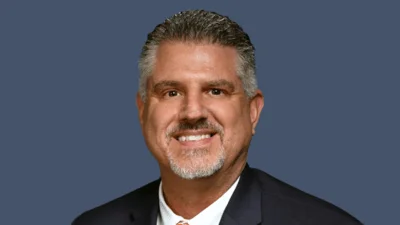Bay 4-H Club issued the following announcement on Dec. 11
Jeff Dwyer, Ph.D., became director of Michigan State University Extension in 2016, and added the responsibilities of senior associate dean of outreach and engagement of the MSU College of Agriculture and Natural Resources in 2017. Previously, he was the senior associate dean for research and community engagement in the College of Human Medicine at MSU.
A sociologist by training, Dwyer focuses his energies on finding new ways to bring transformational education to MSU Extension’s traditional audiences while expanding the organization’s reach to new audiences. MSU Extension’s roughly 600 faculty and staff members follow this philosophy in the hopes of making Michigan a better place to grow a business, raise a family, operate a farm or thrive as a community.
Michigan State University Extension is only as strong as the talented, dedicated people who make up our organization. As such, we are committed to fostering an environment where everyone feels safe, respected and welcomed.
As the principal outreach and engagement unit of the university, MSU Extension has a 100+ year history of taking the science and expertise of a great land grant university to all residents of Michigan. My 600+ colleagues are often the “only MSU” that people may know in their communities. Therefore, they are also representing our shared values and experiences.
During our annual MSU Extension Fall Conference October 29 and 30, 2019, we enhanced our commitment to creating a safe learning environment for everyone by requesting a few all-gender restrooms at the conference venue. In addition, we asked our general-session speakers to use their pronouns when they introduced themselves — mine are he, him and his — and suggested that others do the same. I addressed these issues directly during my opening presentation, which is my one opportunity each year to talk to the entire organization face-to-face.
It is important to not perpetuate an environment that can be exclusionary, stressful and even dangerous for those who are transgender, non-binary or gender non-conforming and we will continue to find ways to do better. As the face of MSU in all Michigan communities, we were also reminded that we represent MSU when we do good work; also, when it is uncomfortable, new or different and even when others don’t agree.
A local television station aired a positive story about our conference’s emphasis on diversity, equity and inclusion, including all-gender restrooms. The comments on the station’s Facebook page, nearly 800 at the time of writing, ranged from incredibly supportive to devastatingly negative. The coverage generated additional responses and queries, including from the offices of elected officials who oversee portions of our budget.
I wanted to share this because when my MSU Extension colleagues live the values of Michigan State University in their communities there are often consequences that we do not experience, or even contemplate, from campus.
We are MSU. We represent the university daily. We strive to do our best, even when we feel unequipped. Living our shared values can be hard, but it is critical to working with more partners and to bring the important work that’s done at MSU to Michigan.
My amazing colleagues also taught me a great deal about kindness, compassion and the importance of words and how they might be interpreted. During the week leading up to our conference, I sent an email, as I do each year, to the organization expressing excitement about the upcoming event and noted a few key pieces of information in preparation, including that all-gender restrooms would be available.
In that email, I inaccurately and unintentionally indicated that gender-inclusive bathrooms are risky. In fact, what is risky is disrespecting our gender non-conforming friends, family and colleagues by, among other things, not providing a safe space. I received several replies from colleagues reminding me that words matter and sent a follow-up email acknowledging my mistake and apologizing the next day.
I am grateful that my colleagues had the compassion to reach out and teach me again about the importance of being a life-long learner. More importantly, they reminded me that talking about difficult topics is important and that if I make poor or uninformed word choices, they will correct me without judgment.
Though diversity, equity and inclusion are a major focus in program planning, this conference was the first time we acted as entire organization to walk our talk. Frankly, it made a few staff members uncomfortable. Some chose not to use the gender-inclusive restrooms. Others still don’t quite understand the importance of using pronouns intentionally. The majority of faculty and staff members in attendance respected and understood the importance of being leaders in inclusion, even when it makes some uncomfortable.
As life-long learners, we know that sometimes people are going to feel uncomfortable in the name of progress. We see similar reactions on campus and in other settings about a multitude of issues and that’s OK. Being uncomfortable is a sign of growth and often generates necessary conversation.
The more we talk about these issues, the less unusual and uncomfortable they seem and we begin to understand each other better. It seems the least we can do. We are only on this planet for a short time and we should really be about making people feel included, that’s the MSU way – on campus and off.
Original source can be found here.


 Alerts Sign-up
Alerts Sign-up